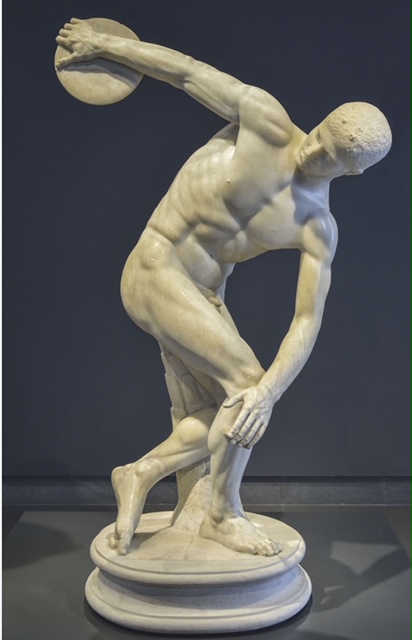
de Ken Kesey
“Zbor deasupra unui cuib de cuci” este un roman publicat în 1962, care examinează dinamica dintre putere și control într-o instituție de boli mintale, simbolizând forțele societale mai largi ale conformității și opresiunii.
Povestea este plasată într-o instituție cu bolnavi mintali din Oregon, cu Bromden ca narator. Bromden se preface a fi surd și mut, ceea ce îi permite să audă și să observe tot ce se întâmplă în secție fără ca nimeni să știe. El descrie secția ca fiind condusă de asistenta medicală Ratched, o figură rece și controlantă, care folosește rușinea, frica și manipularea pentru a-i menține pe pacienți docili și complianți. Instituția, așa cum o vede Bromden, face parte dintr-o forță opresivă mai mare pe care o numește „Combinatul”, care reprezintă controlul societății asupra indivizilor.
McMurphy este transferat în secție după ce a fost condamnat pentru agresiune. El simulează o boală mintală pentru a evita munca grea la ferma din închisoare, crezând că viața în instituție va fi mai ușoară. Din momentul în care sosește McMurphy, personalitatea lui sfidătoare și plină de viață se ciocnește de controlul rigid și autoritar al asistentei Ratched.
Conflictul central al romanului este lupta pentru putere dintre McMurphy și asistenta medicală Ratched. McMurphy realizează rapid că secția este condusă ca o dictatură, asistenta Ratched folosind ședințe de terapie de grup pentru a umili pacienții și a le distruge spiritele. McMurphy pariază cu ceilalți pacienți că o poate face pe asistenta Ratched să-și piardă calmul și începe să se implice în acte de rebeliune, de la încălcarea unor reguli minore până la organizarea unui vot pentru a putea urmări campionatul de baseball la televizor. Asistenta Ratched, totuși, își întărește controlul și manipulează situația pentru a-și afirma dominația.
Romanul se termină într-o notă dulce-amăruie: McMurphy, sacrificându-și libertatea, îi dă lui Bromden și celorlalți pacienți puterea de a-și contesta opresiunea. Evadarea lui Bromden reprezintă posibilitatea recuperării individualității și autonomiei, chiar și în fața unui control copleșitor.
“Zbor deasupra unui cuib de cuci” a devenit un clasic al literaturii americane, cunoscut pentru critica sa la adresa puterii instituționale și pentru celebrarea individualității. Romanul a fost adaptat într-un film de succes în 1975 regizat de Milos Forman, care a câștigat cinci premii Oscar, inclusiv “Cel mai bun film” și “Cel mai bun actor” pentru interpretarea lui Jack Nicholson a lui McMurphy. Romanul și filmul continuă să fie privite ca analize puternice ale spiritului uman și ale controlului instituțional.
in English:
One Flew Over the Cuckoo’s Nest is a 1962 novel by Ken Kesey that examines the dynamics of power and control within a mental institution, symbolizing broader societal forces of conformity and oppression.
The story is set in a mental institution in Oregon, with Chief Bromden as the narrator. Bromden pretends to be deaf and mute, which allows him to hear and observe everything that happens in the ward without anyone knowing. He describes the ward as being ruled by Nurse Ratched, a cold, controlling figure who uses shame, fear, and manipulation to keep the patients docile and compliant. The institution, as Bromden sees it, is part of a larger oppressive force he calls “The Combine,” which represents societal control over individuals.
McMurphy is transferred to the ward after being convicted of assault and battery. He fakes mental illness to avoid hard labor at the prison work farm, thinking life in the institution will be easier. From the moment McMurphy arrives, his defiant, lively personality clashes with Nurse Ratched’s rigid, authoritarian control.
The central conflict of the novel is the power struggle between McMurphy and Nurse Ratched. McMurphy quickly realizes that the ward is run like a dictatorship, with Nurse Ratched using group therapy sessions to humiliate patients and break their spirits. McMurphy bets the other patients that he can make Nurse Ratched lose her composure and begins engaging in acts of rebellion, from breaking minor rules to organizing a vote to watch the World Series on TV. Nurse Ratched, however, tightens her control and manipulates the situation to assert her dominance.
The novel ends on a bittersweet note: McMurphy, in sacrificing his freedom, gives Chief Bromden and the other patients the strength to challenge their oppression. Chief Bromden’s escape represents the possibility of reclaiming individuality and autonomy, even in the face of overwhelming control.
One Flew Over the Cuckoo’s Nest has become a classic of American literature, known for its critique of institutional power and its celebration of individuality. The novel was adapted into a successful 1975 film directed by Milos Forman, which won five Academy Awards, including Best Picture and Best Actor for Jack Nicholson’s portrayal of McMurphy. The novel and film both continue to be regarded as powerful examinations of the human spirit and institutional control.


